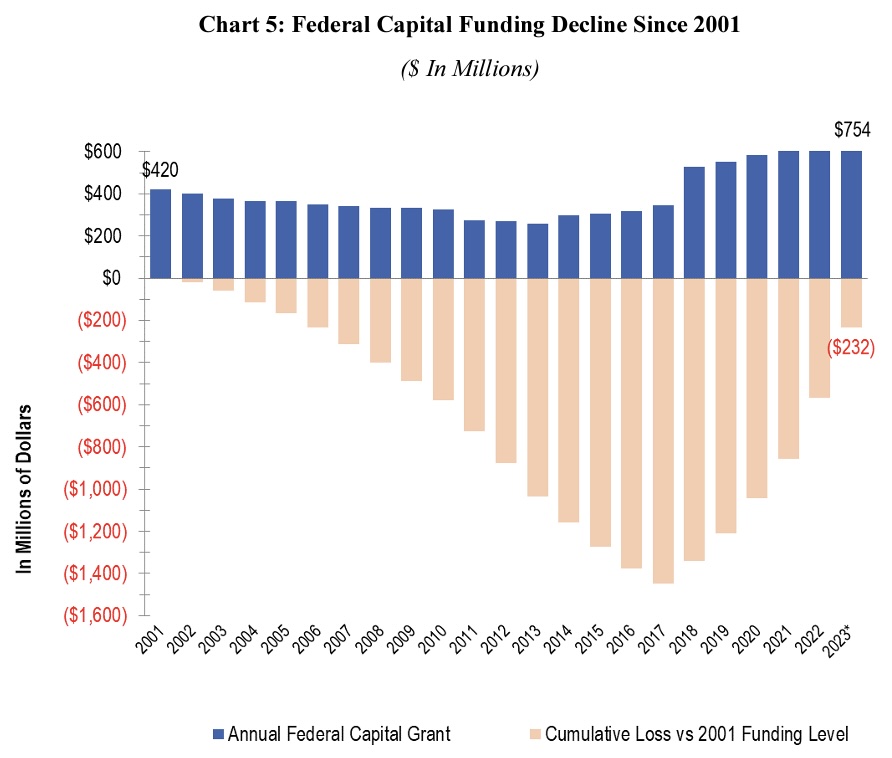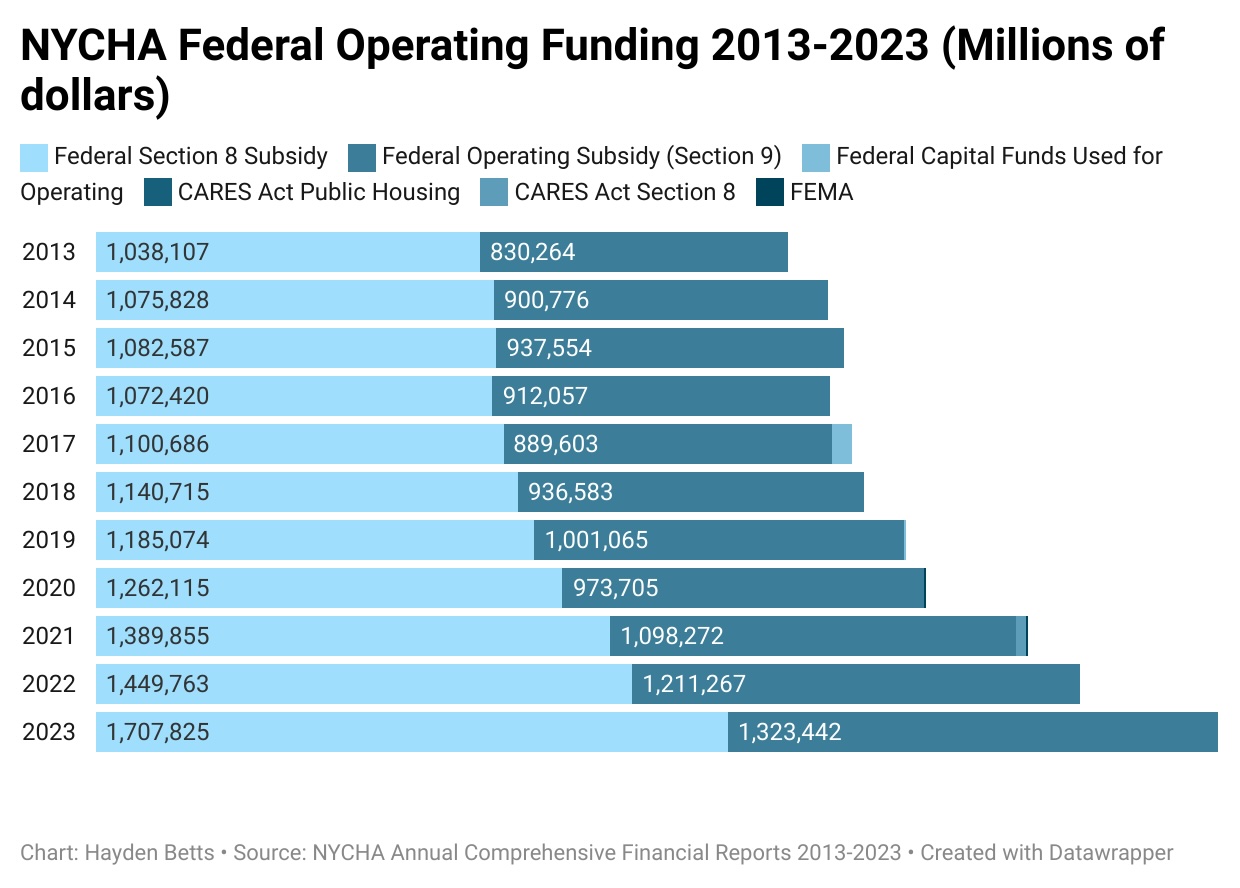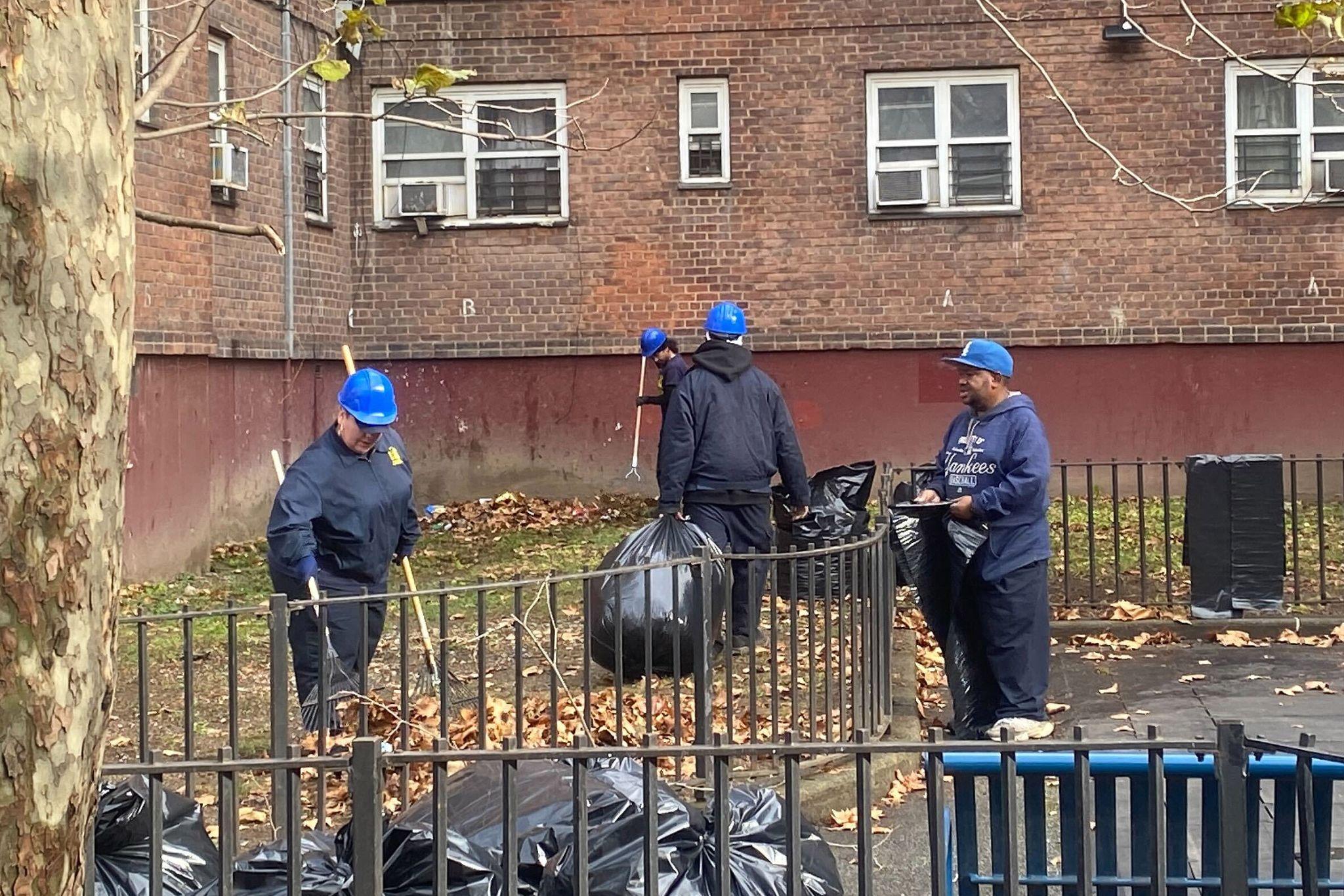Over pastries and coffee in a gilded Midtown event hall, NYCHA Chair Jamie Rubin warned Congressman Ritchie Torres that federal funding for social services programs in New York State could face cuts under the incoming Donald Trump administration.
“It seems pretty clear that there’s going to be at least an effort to extend the tax cuts,” Rubin said. “Once they figure out that they have to pay for all of that, it’s likely to be severe cuts in areas that affect, disproportionately, people in the state – like Medicaid and SNAP and so forth.”
Rubin did not specifically predict cuts to the New York City Housing Authority in his remarks at the Citizens Budget Commission Breakfast on Nov. 18, but his references to a potential “federal dollar decrease,” “hard choices that have to be made,” and his invocation to Torres to exercise “his enormous influence” to shape funding decisions in New York State suggest that he is concerned that the housing agency’s federal funding could be under threat.
According to budget documents, in 2022 NYCHA relied on federal subsidies for 59% of its $4.2 billion operating budget. That figure includes about $1.4 in federal subsidies allocated for NYCHA to administer Section 8 housing and $1 billion to operate traditional Section 9 housing.
In an interview with the Mott Haven Herald, District 17 City Councilman Rafael Salamanca echoed Rubin’s concerns about the possibility of decreased federal funding for subsidized housing in New York City.
“Many, many of my constituents are rent-burdened, and they depend on Section Eight and other programs. And so there’s a concern about losing funding for those programs. We’re keeping a close eye in terms of the city level as to what we may lose financially from the federal government, and how we as a city government may have to fill in those gaps to address those issues,” Salamanca said.
NYCHA officials are also grappling with a substantial backlog of capital improvements, operating under a significant funding deficit that hampers its ability to maintain safe and habitable conditions for its residents. In 2023, NYCHA announced that it required $78.3 billion over 20 years to address critical repairs, including the replacement of broken elevators, faulty heating systems, and deteriorating kitchens and bathrooms.

This chronic underfunding has led to neglect across NYCHA properties. For instance, at Patterson Houses in Mott Haven, residents have faced persistent heating failures, forcing many to rely on unsafe methods like ovens and space heaters to stay warm. NYCHA properties have also faced persistent elevator outages.
Others Recommend a Wait-and-see Approach
Bronx Borough President Vanessa Gibson urged caution. “We can’t be enemies to the administration. We have to work with them, because at the end of the day, they could be punitive and cut our funding again.”
Danny Barber, chair of NYCHA’s Citywide Council of Presidents and a resident of Melrose’s Jackson Houses, also recommended restraint in assessing the potential impact to NYCHA of the Trump administration and its HUD Chair nominee, Scott Turner.
“It’s hard to say what impact they’ll have until they get here,” Barber said. Turner, a former NFL player and Texas state representative, championed opportunity zones in his position as head of the White House Opportunity and Revitalization Council during Trump’s first term.
Barber emphasized that support for public housing does not always follow conventional partisan lines.
“The Obama administration is what brought the privatization of public housing,” Barber said, referencing Obama’s Rental Assistance Demonstration program which opened the way to NYCHA transferring control of more than 15,000 units to private Section 8 landlords. “[Obama] was supposed to have been the savior that was coming to rescue the people from the claws of the Republican regime.”
Barber pointed out that the Trump administration’s first term maintained federal funding levels for public housing, which he noted were comparable to or better than prior administrations. “If you look at the numbers, they were closer to a dollar on the dollar for public housing,” Barber said. “That’s more than some Democrats have historically put up, right?”

The first Trump administration did not bring cuts to either NYCHA’s federal operating funding or its federal capital funding. That administration also saw the implementation of a federal monitor to ensure NYCHA’s compliance with a consent decree to address systemic issues like lead paint, mold, and broken heating systems.
As Turner’s nomination heads to the Senate, Barber is keeping an open mind. “He deserves a fair shot to see what he actually does,” Barber said.
Rep. Torres emphasized the stakes of properly capitalizing NYCHA at the Citizens Budget Commission Breakfast.
“As far as I’m concerned, NYCHA is too big to fail. Most people who live in public housing would be homeless without it,” Torres said.
Additional Reporting By Dawn Kikel.

